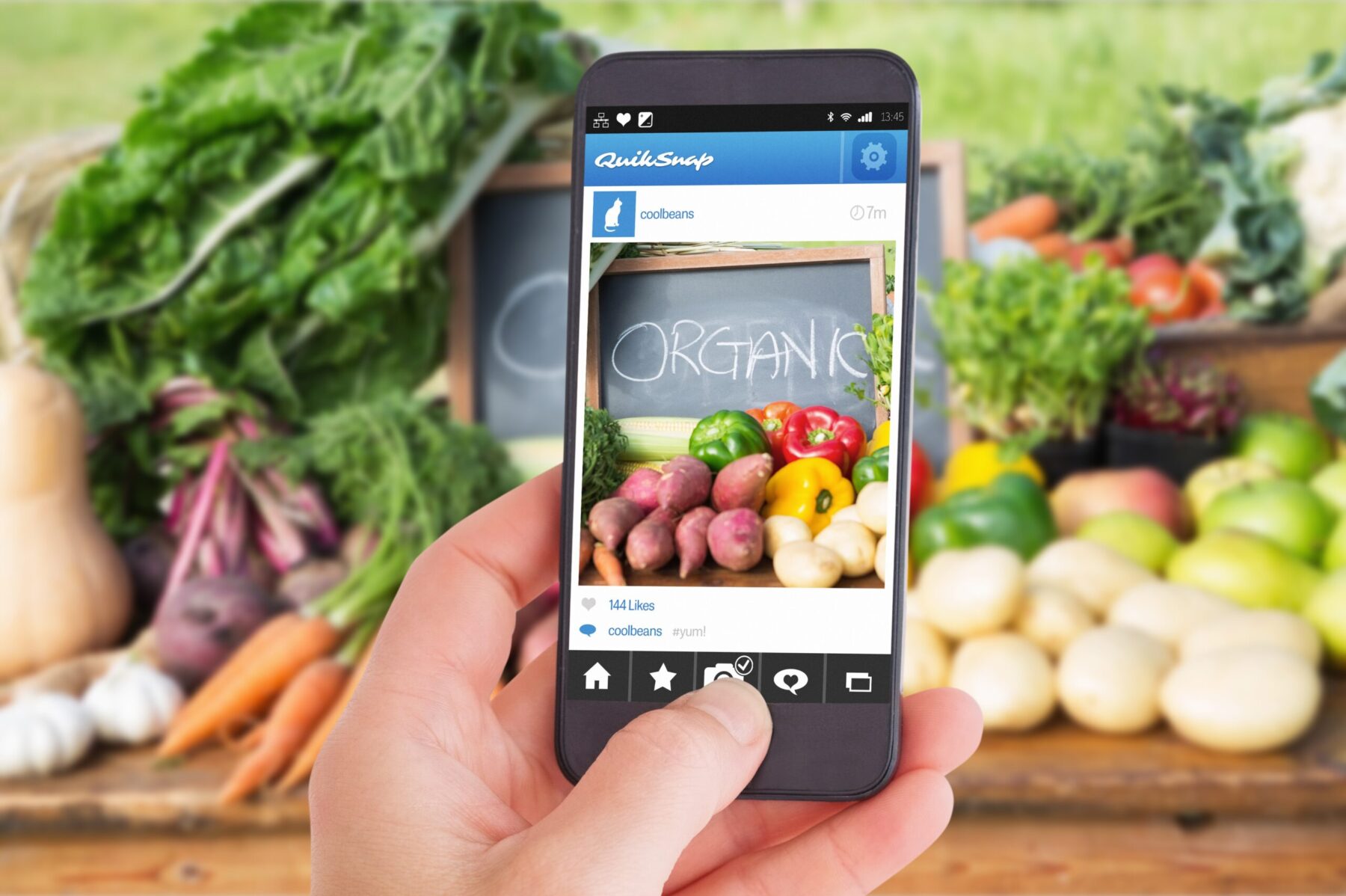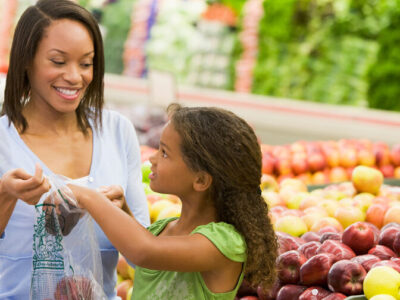National Farmers Market Week is August 2-8 this year, and the 2020 celebration is expected to be very different than years prior. As a result of COVID-19 precautions, many farmers’ markets were shut down by officials or simply left in a confusing legal limbo. An April report from Brookings Institution noted that across America, “a dozen states have declared them ‘essential businesses,’ but a majority have not offered concrete guidance on their operation during the crisis, leaving their fate up to shifting guidelines from city and local leaders.”
This financially crippling predicament caused many farmers’ markets to think “outside the crate” and it has led many of them to set up their stands on the internet. Virtual farmers’ markets are not a new idea – many cite Athens, Georgia’s Locally Grown with starting the first market in 2002 – but the totality of markets now online has grown significantly since the pandemic’s arrival this past spring.
With vendors and farmers’ livelihoods dependent on revenue earned from these markets, a solution on guidance was drastically needed. The National Sustainable Agriculture Coalition estimates that small farms, which rely heavily on the markets’ income to survive, could lose approximately $600 million dollars from canceled farmers markets’ sales this year.
Consumers will be happy to learn that internet-based farmers’ markets are quite similar to the outdoor markets they enjoy. In fact, many online versions mimic the same in-person feel, according to farmersmarket.net. Vendors have their virtual booths, where customers can browse to see what farm-fresh items are in stock. Although they can’t chat up the vendors face-to-face, there are frequently “chat rooms” (like online forums), emails, or other ways to communicate with a vendor. Also, like traditional farmers’ markets, these online counterparts typically have managers to maintain quality control over the items that vendors sell.
Virtual farmers’ markets provide unique benefits for customers. They often operate for multiple days, giving people with a wider window of time to shop and right from the convenience of their own home. Patrons can also arrange a pick-up time and location for when their order is prepared. Likewise, some virtual markets will even deliver to your doorstep.
Online farmers’ markets provide time and energy savings to farmers and vendors too. Some of this extra time can be spent on ways to improve their marketing, like labeling their delivery packages so customers have a better idea of what farm their favorite potatoes or plums are coming from. Another added benefit is that the online marketplace offers small farms a potentially bigger customer base without expensive advertising.
Running a virtual farmers’ market is a little different than managing a traditional one, where income is generated through booth fees and maybe on-site promotions experience. A virtual market manager instead may negotiate a certain percentage of a vendors’ earnings instead of a booth fee. Additionally, since there isn’t the expense of a physical location, virtual farmers’ markets tend to have lower operating costs thereby improving the sustainability of their business model.
South Florida’s Farmer’s Markets To Go virtual market (www.FarmersMarketsToGo.com) is one site that takes a commission on what is sold, while not having a fee for vendors to participate. Farmer’s Markets To Go launched this spring by Laurie Landgrebe, who went from farmers’ market vendor to co-founding the online marketplace. Landgrebe, who sold her Laurie’s Pantry granola at a dozen Florida farmers’ markets, witnessed the markets being forced to close due to COVID-19 and knew she had to do something to keep her revenue stream. With her partner Victor Vigano, she started Farmer’s Markets To Go, and began inviting fellow vendors to join. The site features a section containing a half-dozen farmers’ markets from which customers can search for – and buy from – their favorite vendors.
For nearly a decade, the non-profit Roots Rising has organized the Pittsfield Farmers Market (the first teen-run farmers market) in the Berkshires of western Massachusetts. When COVID-19 shut the market, Roots Rising realized that the community still needed access to fresh food and local farmers were facing financial hardships. With funding from organizations like the Berkshire United Way, Berkshire Agricultural Ventures, and Harvard Pilgrim Health Care Foundation, Roots Rising created its virtual farmers market (https://www.rootsrising.org/virtualfarmersmarket), which is committed to food justice for both the consumers and farmers. Roots Rising also offers resources, such as how people can purchase food directly from their vendors, as well as other local online markets, farms, and stores.
It might seem surprising to see the restaurant chain, Chipotle, operating a virtual farmers market; however, it is part of the company’s “Food With Integrity” program. As a way to provide additional support to the farms that are food suppliers to its restaurants, Chipotle has created a special “farmers market” online featuring members of its “farming family.” By going to https://farmersmarket.chipotle.com, the public can learn about these farms (such as Niman Ranch, Petaluma Creamery, McKaskle Family Farms, and Meister Cheese Company) and purchase directly from their websites.
Farmers’ markets are beneficial for everyone. They introduce shoppers to new, fresh products and produce at the same time providing farmers with a direct revenue stream. While our country continues to practice social distancing, it’s nice to know that we can still count on the things we depend on the most healthy, fresh options to feed our families.





